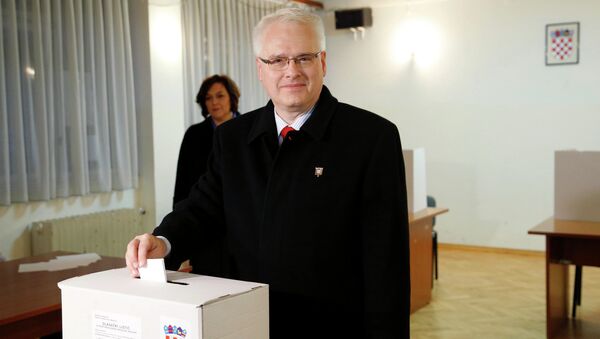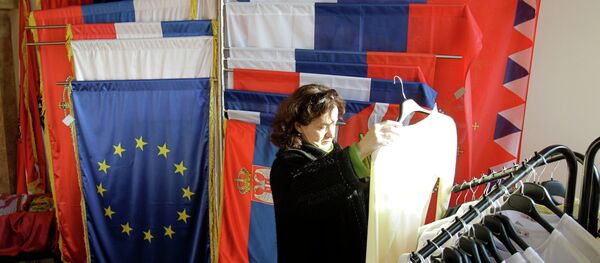Croatia insists that prosecution of its nationals flies in the face of international law and has responded by blocking Serbia’s negotiations with the EU.
“Serbia is not a country to be treated like this, especially by someone like Croatia which is unable to protect even those ten memorial plaques inscribed in Cyrillic letters and where fascist greetings are so commonplace during holiday events,” Ivica Dacic said.
Even Croatia’s own ex-President Ivo Josipovic criticized Zagreb of having gone “too far” and, in a letter to his successor, Kolinda Grabar-Kitarovic asked her to end what he described as “non-constructive hysteria about Serbia” and stop blocking Belgrade’s accession talks with the EU.
“There are more serious domestic problems, both economic and social, we should focus on. What really matters now is to help our neighbors’ efforts to join the European Union,” Josipovic said in an interview with Sputnik.
He also said that Croatia had the very same law (on prosecuting war criminals) now in effect in Serbia because of which Croatia was trying to block Belgrade’s EU accession talks.
“There is a $27 billion foreign debt we will hardly be able to pay back next year, which means that we have lots of serious problems on our hands to deal with,” Josipovic emphasized.
The ex-president refused to guess who would win in this year’s presidential elections but feared that the outcome would be the same as before and that “the same party” would be calling all the shots.
Croatia will hold a snap election on September 11, President Kolinda Grabar-Kitarovic said in a statement last week.
The European Union's newest member is holding an early election following the fall of Prime Minister Tihomir Oreskovic's government as a result of a split in the center-right coalition between the conservative HDZ party and its junior reformist partner, Most ("Bridge").



